DOJ Will Defend Trump’s Rape Denial
A typical case of American blind justice.
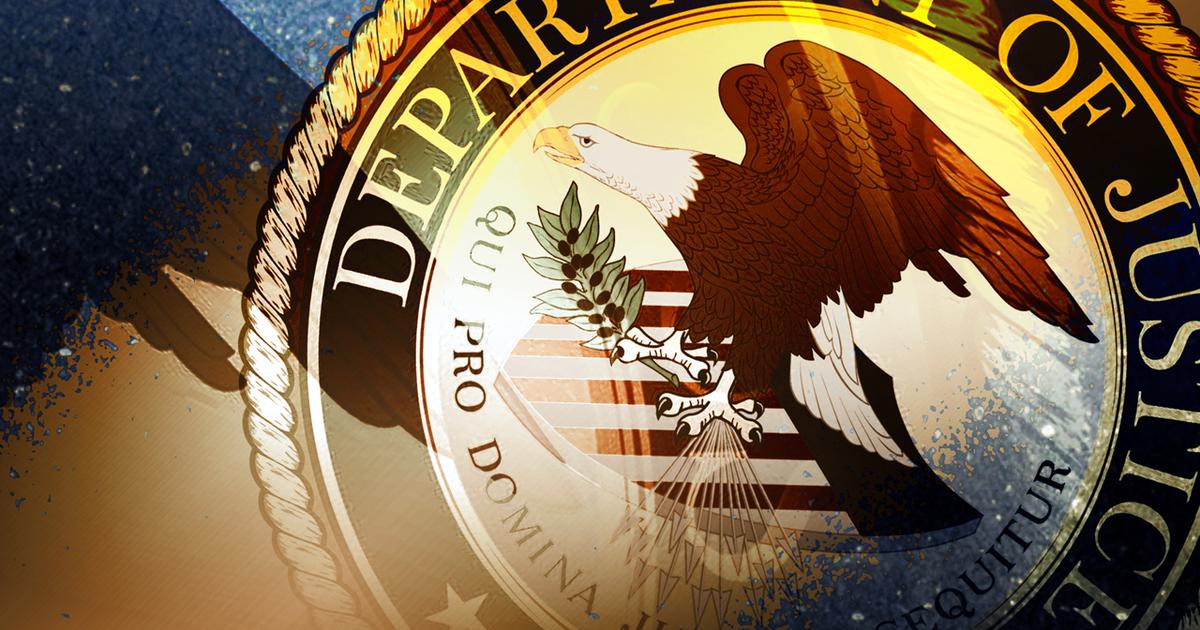
When I saw the NYT headline “Biden Justice Department Seeks to Defend Trump in Suit Over Rape Denial,” I was confused. But, reading the story, it’s rather obviously the right call.
During the presidential campaign, Joseph R. Biden Jr., then the Democratic candidate, slammed his opponent, Donald J. Trump, for a highly unusual legal move: bringing in the Justice Department to represent him in a defamation lawsuit stemming from a decades-old rape allegation.
At one of their debates, Mr. Biden accused Mr. Trump of treating the Justice Department like his “own law firm” in the suit, filed against him by the writer E. Jean Carroll. “What’s that all about?” he sarcastically asked.
But on Monday night, nearly eight months after Mr. Biden’s attack, his own Justice Department essentially adopted Mr. Trump’s position, arguing that he could not be sued for defamation because he had made the supposedly offending statements as part of his official duties as president.
So, that’s awkward. But it’s also true.
In a brief filed with a federal appeals court in New York, the Justice Department acknowledged that Mr. Trump’s remarks about Ms. Carroll were “crude and disrespectful,” but the department also claimed that the Trump administration’s arguments were correct — a position that could lead to Ms. Carroll’s lawsuit being dismissed.
Mr. Biden has repeatedly said he wants to restore the Justice Department’s traditional independence from the White House — a stance that has been echoed by several of his top picks for the department’s leadership.
That DOJ is doing the legally-correct thing even though it’s politically inconvenient for Biden would seem to indicate its independence.
Even so, the late-night filing caught many, including Ms. Carroll’s lawyers, by surprise and marked another twist in a protracted legal battle.
Unless there’s a statute of limitations issue, I never understand why government agencies would do much of anything late at night.
The details are sordid but the timing is crucial to the understanding:
That dispute began in November 2019 when Ms. Carroll, a longtime columnist for Elle magazine, sued Mr. Trump, claiming he had lied by publicly denying he had ever met her, after she had accused him of rape months earlier. In a book excerpt published in New York magazine that June, Ms. Carroll wrote that Mr. Trump had thrown her up against the wall of a dressing room at Bergdorf Goodman, an upscale department store in Manhattan, in late 1995 or early 1996. Then, she claimed, Mr. Trump pulled down her tights, opened his pants and forced himself on her.
Shortly after the excerpt was published, Mr. Trump said in an Oval Office interview that the assault had never happened and that he could not have raped Ms. Carroll because she was not his “type.” According to the lawsuit, Mr. Trump also issued an official statement accusing Ms. Carroll of lying about the alleged assault.
So, the alleged rape happened long before Trump was President. But, crucially, the book came out more than two decades later, when Trump was President and thus capitalizing on his heightened prominence. Trump was then interviewed in his public office and he answered the questions in a way Carroll didn’t like from said office. I don’t see how it could possibly be other than an official act.
For several months, the defamation suit wound its way through a state court in New York. But then last September, one month after a state judge issued a ruling that potentially opened the door to Mr. Trump sitting for a deposition before the election, the attorney general, William P. Barr, stepped into the case. In a highly unusual move, Mr. Barr transferred the case to federal court and substituted the federal government for Mr. Trump as the defendant.
Federal law forbids government employees from being sued for defamation, meaning that if the move was successful, Ms. Carroll’s claim would be dismissed.
To the extent Carroll’s reputation was damaged by Trump’s response (I’m frankly dubious that it was or, indeed, that someone should have the burden of defending against a defamation suit for denying a rape allegation or saying that the accuser is not his type) it’s a shame that she has no recourse. But the problem is the law shielding government employees from defamation suits, not DOJ’s decision that the President is a government employee or that his speech from the Oval Office is official.
Mr. Barr’s move raised the question of whether Mr. Trump had in fact made his comments about Ms. Carroll as a government employee — a position that Ms. Carroll’s lawyers roundly rejected. “There is not a single person in the United States — not the president and not anyone else — whose job description includes slandering women they sexually assaulted,” the lawyers said in a filing last year.
But that’s an absurd position. If someone lodges a claim that the President of the United States raped them nearly two decades earlier, presumably because it sells more books to make salacious claims about a sitting President than a third-rate real estate broker, it’s rather incumbent on said President to answer questions about the claim. Obviously, he shouldn’t lie about it, much less defame someone in doing so. But, to the extent the law protects public officials from defamation claims, it’s hard to argue that the only Constitutional officer of the Executive Branch of our government isn’t covered.
In October, the first federal judge to consider the case, Lewis A. Kaplan of Federal District Court in Manhattan, agreed with Ms. Carroll, blocking Mr. Barr’s move and deciding that the suit could continue against Mr. Trump in his private capacity. Mr. Trump’s comments concerned events that had occurred “several decades before he took office,” Judge Kaplan ruled, and had “no relationship to the official business of the United States.”
But that’s just a stupid position. These were allegations first levied in a book published during his presidency and statements made while he was President.
Before Mr. Trump left office, the Justice Department appealed Judge Kaplan’s ruling, and many legal observers predicted that a new attorney general, under Mr. Biden, would drop the Trump-era claims.
The brief filed on Monday night was the first time the Biden administration’s Justice Department, now led by Attorney General Merrick B. Garland, weighed in on the issue. In the brief, department lawyers said that when Mr. Trump had denied raping Ms. Carroll, through the White House press office or in statements to reporters in the Oval Office and on the White House lawn, he was acting within the scope of his office.
“Elected public officials can — and often must — address allegations regarding personal wrongdoing that inspire doubt about their suitability for office,” the department lawyers argued, adding, “Officials do not step outside the bounds of their office simply because they are addressing questions regarding allegations about their personal lives.”
I honestly don’t see how it can be otherwise. The nature of being a public figure is that one’s private life really isn’t private.
Ms. Carroll’s lead lawyer, Roberta A. Kaplan, reacting to the new filing, said that as “horrific” as the alleged rape was, it was “truly shocking that the current Department of Justice would allow Donald Trump to get away with lying about it.”
So, this is moronic. Carroll isn’t suing over the alleged rape. To the extent she still has a justiciable case a quarter-century after the fact, this has no bearing on it. She wants to be paid for Trump’s alleged defamation of her when he was President in response to rape charges she levied against him while he was President.
Further, DOJ taking the position that a sitting President is a public official doesn’t end the matter. Indeed, we have a federal judge on the record claiming otherwise. Presumably, at least one appellate court, perhaps even the Supreme Court, will weigh in on the matter.
Beyond that, if Trump isn’t liable for the alleged defamation because he was acting in his capacity as President, that’s not DOJ’s fault. That’s the law. Which DOJ is supposed to uphold.
UPDATE: POLITICO contains further explication of DOJ’s argument:
“In making and defending a Westfall Act certification … the Department of Justice is not endorsing the allegedly tortious conduct or representing that it actually furthered the interests of the United States. Nor is a reviewing court making any such determinations in upholding the Department’s certification,” the acting head of the Justice Department’s Civil Division, Brian Boynton, wrote in the new submission.
Boynton also adhered to the stance the Justice Department adopted in the case last September: that Trump was acting in the course of his official duties as president when he denied Carroll’s rape allegations from more than two decades ago.
“Speaking to the public and the press on matters of public concern is undoubtedly part of an elected official’s job,” Boynton added. “Courts have thus consistently and repeatedly held that allegedly defamatory statements made in that context are within the scope of elected officials’ employment — including when the statements were prompted by press inquiries about the official’s private life.”
Further, as I surmised, this is just part of an ongoing legal battle over the public/private distinction here:
Last October, U.S. District Court Judge Lewis Kaplan rejected the government’s motion to essentially step into Trump’s shoes as the defendant in Carroll’s suit.
The Justice Department appealed that decision, asking the 2nd Circuit to overrule Kaplan. In January, DOJ lawyers even filed a brief early in an apparent bid to cement the government’s position before Biden appointees took over.
The brief due on Monday night was the first from the Justice Department in the case since Biden’s inauguration.
So, Kaplan’s ruling is still in effect. DOJ is asking the 2nd Circuit to overturn it.
Further, there’s an imperfect precedent for this:
Justice Department attorneys also pointed to a 2006 D.C. Circuit Court of Appeals decision that accepted arguments from lawyers for former Rep. Cass Ballenger (R-N.C.) that a press interview he gave about his separation from his wife was within the scope of his official duties.
In the exchange, Ballenger said one reason for the separation was that his wife was uncomfortable living across the street from the offices of the Council on American Islamic Relations, which he called “the fundraising arm for Hezbollah.” The group sued Ballenger for slander, but the courts ultimately agreed that the congressman was seeking to preserve his official reputation when he addressed the question about his marriage.
Not that it matters, but I would argue being accused on being a fundraising arm for a terrorist group is more defamatory that being accused of lying about a long-ago rape in order to sell books.

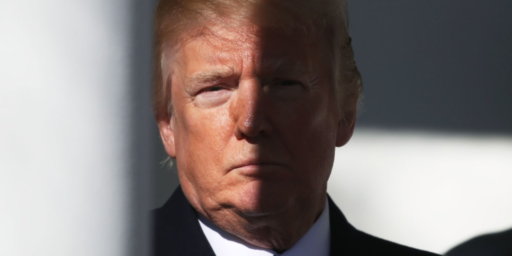
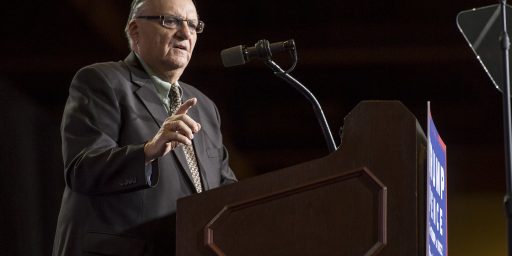
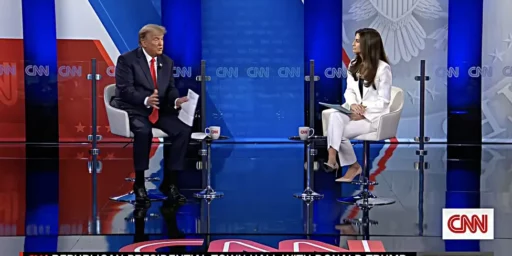
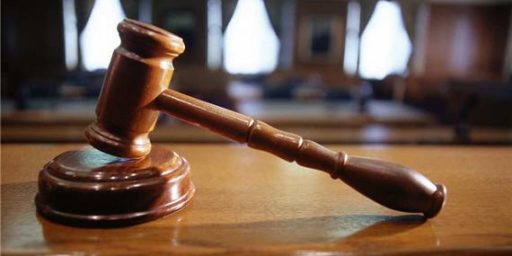
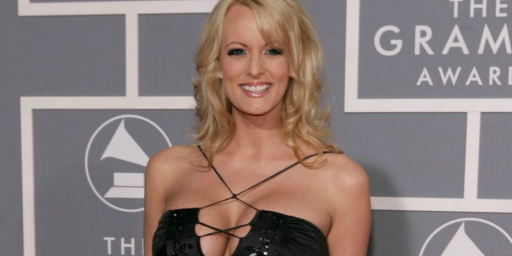
Not quite statute of limitations. Probably a briefing schedule. Now that most courts have electronic filing, deadlines that used to be close of business are not basically midnight. Government lawyers are like all other lawyers. It’s just a matter of working/tweaking/getting necessary approvals right up to the deadline.
Hold on a minute. While it is true that the presumption (under Westfall) is that statements made by a government employee while at work fall within the scope of their employment, this is a presumption, not an absolute.
For the substitution to be sustained, Trump’s statements have to have been serving the agency of his office – i.e. they must be fulfilling a legitimate presidential duty / responsibility. In simpler terms, it’s not really enough that you made the statement while at work. You also have to have been acting within the scope of / in furtherance of your professional duties in making them. Trump may have been speaking as the president in the context of a presidential interview, but the subject matter falls well outside the bounds of his official duties. Indeed, it concerns alleged conduct which predates his entry into office. The substitution itself in this scenario is erroneous.
To subscribe to the DOJ’s position in this instance is to presume that every word a president utters, however removed from any connection to the duties of his / her office, merits protection. It’s essentially creating an imperial presidency / not that far removed from lèse-majesté, and that is a step too far. This woman would have had a difficult enough time sustaining her claims under current defamation law, but she absolutely deserves the opportunity to have those claims evaluated on their merits. There is no defensible rationale for denying her that.
How on earth can denying an allegation of rape that allegedly occurred during one’s time as a private citizen be an official act?
I’m not saying this isn’t legally the case, but, if so, this seems to be a pretty ridiculous law.
How hard can it be to draw a distinction between “X, the private citizen” and “X, the POTUS?”
@HarvardLaw92:
Honestly, that makes more sense to me. I’m just relying on the reporting.
Are there really bounds outside a President’s official duties? He’s both Chief Executive and the de facto Head of State. In the latter capacity, allegations of rape or other moral turpitude harm the country as a whole, not just the office-holder.
We’re pretty close to that in fact if not theory. Most legal scholars (although by no means all) argue that the only remedy for criminal conduct committed by a President is impeachment. We have now impeached a President four times, including two times with Trump. We’re now 0-for-4 in convicting and removing them via the Senate.
@HarvardLaw92:
Absolutely agree with the standard but I’m not sure it does fall outside the bounds of official duties.
Let’s say that Mike Lindell makes an allegation that Kamala Harris murdered someone as part of an anti-whitey terrorist group while she was at Howard. Vice President Harris gets asked about this while she is down in Texas touring a border crossing area and denies the allegation in no uncertain terms, sarcastically pointing out the unreliability of the source of the allegation. Lindell sues her for defamation in Texas. Should the DoJ step in and apply Westfall? I think we’d all agree they should.
The only real difference is that Trump is repugnant and it is believable that he did assault Carroll. And that can’t be the test for whether the DoJ steps in.
@James Joyner:
Absolutely. A president’s sex life, however mundane or extreme, hardly falls within the scope of his official duties. This is especially the case when the conduct he’s referring to / ostensibly defending himself against predates his term of office altogether. Moreover, do allegations of moral turpitude harm the country as a whole, or benefit the country as a whole? One could argue that greater clarity regarding the character of any elected officeholder, but especially a president, benefits the public.
This strikes me more as an attempt to sidestep the presidential inconvenience of Clinton v. Jones, if we’re honest about it. It’s not so much about Carroll and her doomed suit as it is about nullifying Clinton v. Jones to the extent that they can get away with it.
@SKI:
Speaking honestly, I don’t agree that they should. The correct course of action there would be for Harris to countersue Lindell in her private capacity should she choose to do so. Beyond that, we’re getting into the odd territory of “anything that upsets her prevents her from doing her job, and every word she utters is an official statement, so we have to protect her from it”. I just can’t buy that level of deference, tbh about it. There has to be a line between public acts and private conduct, or else we’re venturing into l’état, c’est moi.
@HarvardLaw92:
I haven’t given much thought to how Westfall relates to Clinton v. Jones. Honestly, despite my utter disdain for Clinton, I thought that case was wrongly decided, even though it was unanimous. It seems obvious to me that the clock should stop on cases for Presidents and Vice Presidents. Otherwise, their attentions and energies are divided.
@SKI:
Let me pose it another way – a mid-level supervisor at EPA (who is currently embroiled in a nasty divorce action) is giving a press conference about Superfund sites. He’s asked by a reporter about his soon-to-be ex wife’s statements about him. He calls her a lying b*tch and she subsequently sues him for defamation. Should DOJ substitute itself for him in his wife’s action, or are we smart enough as a country and a people to recognize that the venue / timing of his statements, considered on their own, do not summarily make them official statements.
It seems to me that presumption is what’s being made here and what’s in play – is there a line between the official acts of a president and his/her private conduct? In DOJ’s perspective, the answer to that question appears to be no. I disagree with them.
@James Joyner:
LOL, that’s why G-d created attorneys 😀
I, and the country, were not in any way harmed by rape allegations against Trump. To me, this highlights a basic dichotomy in point of view. We both feel the Presidency, and SCOTUS, and my Governor should be respected. I would take that more as an admonition for the individuals holding those offices to behave respectably than for me to blindly respect them.
What @HarvardLaw92: said in reply to SKI,
We are indeed deep into an imperial presidency. Isn’t that a problem we should address?
@HarvardLaw92: Let’s say I get a piece published criticizing the FAA for being so mean to private pilots. Some FAA dude holds a press conference about “whether the FAA is mean to private pilots”, and during that press conference he says, Trumplike, “you know, people are saying that Gischer guy is part of ring of Satan worshipping pedophiles.” As a result, I get the usual round of harrassment, death threats, etc.
This is official business? I couldn’t sue him for defamation?
Now mind you, I might rather seek an interview where I laugh and say, “this is what I was talking about”.
@James Joyner:
That, being, of course, the argument in the OLC opinion that prevented Mueller from actually accomplishing anything. Can they maintain that position with a straight face after four years of TFG playing golf and watching TV?
@Jay L Gischer:
You can sue. The problem is that, if the AG determines that he was acting within the scope of his duties (and that individual determination is all that is required), presto change-o, you aren’t suing him individually any longer. A substitution is made and now you’re suing the United States Government. Which means that you and your attorney(s) are now going up against the entire DOJ. Best of luck …
@Jay L Gischer:
No edit button …
I meant to follow on to the above with:
I think you can see the problem there. The law as written presumes that the AG will act honorably and within the scope of his constitutional duties to produce a cogent determination based on the facts of the situation, and only invoke Westfall in circumstances that legitimately merit the invocation. In short, it presumes that the AG is acting as an AG should act. Like so many of our constitutional and legal protections, it’s premised on the presumption of honorable public servants carrying out their duties dispassionately and ethically.
It makes no allowance for a complicit AG (Barr) who is willing to invoke it unilaterally in order to protect a president from political problems or difficulties stemming from his private conduct. That scenario not only turns the DOJ into the president’s private law firm, I’d argue that it also turns it into an extension of his/her political campaign. That’s just a step too far for me to swallow. Nixon is rising from the grave.
@HarvardLaw92:
But what if she doesn’t want to sue? Whether because he is judgement p[roof or due to the Rule of Goats… Then what?
Absent universal and effective anti-SLAPP laws, will we allow bad actors to derail administrations?
I get the concerns about Imperial Presidencies but this seems like a really poor place to start to draw the line.
@HarvardLaw92:
I think that analogy fails due to the identity of the speaker. I don’t worry about a mid-level anything being targeted by bad actors. Nor do I think that their personal virtue is job-related – which was a key factor in applying Westfall to POTUS statements.
@HarvardLaw92:
I thought you cant sue the government for defamation?
@HarvardLaw92:
Very much this but the counter-argument is that your solution also requires that the non-governmental litigants are only bringing meritorious suits, or at least colorable ones.
Which is more prevalent: bad-actor AGs or bad actor litigants? What do we, as a society, have more control over? I would suggest that the bigger danger is allowing the Mike Lindells and Jacob Wohls and Roger Stones of the world to launch suits at our key leaders that are designed to prevent the orderly functioning of government.
@SKI:
Then good luck and G-d bless. I think the point where we are departing from one another is the magnitude of what derails administrations. I’m just not prepared to give the same level of deference, especially when she’s a trained attorney who’s well aware of when to say “Given the source, I’m just not going to comment on that”. If she willingly exposes herself to a defamation action by choosing to make statements in an official setting about private matters, then she chose to expose herself. I don’t see a rationale for calling in DOJ to rescue her from herself.
That falls into same venue as the above. We simply differ on the degree of deference we think the presidency is entitled to, and I can respect that. I don’t think you’re wrong; I just have a different idea about presidential deference.
You can’t, in a direct sense. You also can’t sue a government official acting ex cathedra. That having been said, FTCA doesn’t protect workplace actions external to a government employee’s official duties (discretionary or not thanks to FELRTCA). For the protections of FTCA to apply, one has to have been acting within the scope of one’s professional duties. That having been said (again, thanks to FELRTCA), once the determination has been made by the AG, the government replaces the individual party defendant. The standard, however, remains the same.
Is it easy to win these cases? No, it’s virtually impossible due to the presumption and the placement of the burden of proof, but they are permissible.
@SKI:
Given that we only have one AG at a time, bad faith litigants would be more prevalent. In my mind the relevant question is which is more of a threat to the Republic?
This is just nonsense. This assumes Presidents and Vice-Presidents are irreplaceable.
Throughout US history that has been proven false. Whether through death, assassination, resignation and even elections, they are easily replaceable.
If this is the foundation of the argument, it is a weak foundation.
@SKI:
I’m not unaware of the door I’m potentially opening, and I acknowledge the Box of Pandora’s potentially lying in wait on the other side of it. I’m just not prepared to cede that total deference is a necessary cost of avoiding it.
Basic point, I think, is that I’m entirely unhappy with the concept of an AG, any AG, being given the power to unilaterally decide when this substitution is merited. It’s too open to being stretched into a tool of staunching legitimate suits and, more to the point, political inconvenience. I’d be perfectly happy with this state of affairs if the AG had to convince a court that the substitution is merited. (I’m generally unhappy with anybody in government having unilateral authority over anything, if we’re completely honest about it. The level of trust required to tolerate that is just no longer there. )
Sure, they will have some interns defend it. 😉
@Scott:
I’m not arguing that they’re irreplaceable but that, while in office, they should be able to do their jobs without being distracted from nuisance lawsuits.
Since IANAL, I cannot comment on the specifics of the case.
In terms of the decision to continue to defend this position, former Federal Prosecutor Ken White (@popehat) points out on the reg is that this type of behavior is the norm for the Justice Department. You often see this happen even when there are major changes in who is in the White House. Generally speaking, the Justice Department doesn’t like ceding ground (unless they think that there is a chance that a ruling will create president that will limit their power). In fact, he went to this in a bit of detail over Justice’s defense of a different Trump era filing in last week’s “All the Presidents’ Lawyers.”
https://www.kcrw.com/news/shows/lrc-presents-all-the-presidents-lawyers/michael-flynn-and-myanmar
@James Joyner:
Even if, for purposes of argument, we accept this as true, Trump is no longer President. Why should the DOJ still be defending him now, when he no longer has any official duties to be distracted from?
@Stormy Dragon:
The premise they are defending is absolute immunity for official acts. The assertion that was made is that Trump made the statement as an official act (which, as I said above, I think is cow poo, but it’s the presumption they’re working under). Trump, or any other president for that matter, doesn’t lose that immunity with respect to legitimately official acts they carried out while they served as president when they leave office.
They’re not really so much interested in Trump, IMO, as much as they are interested in preserving (and narrowing, if they can) the already narrow circumstances under which the government / government officials can be sued.
@HarvardLaw92:
And that’s the real problem here, isn’t it. When the Trumpskyites bitch about a protected elite, isolated from real ‘Muricuns, they’re right. And when people bitch about both parties being alike, there’s a fair degree of truth. Biden wants to protect the power and privilege of the President as much as the Former Guy. I don’t know how to fix this, but I’m pretty sure Republicans are not the lesser evil.
Nuisance lawsuits can be dismissed sua sponte by the courts but legitimate criminal charges against a sitting president are a matter of concern for everyone involved. If one believes a sitting president should be immunized, then pass a law or an amendment, as it is there is no provision under the law in delaying prosecution. Being distracted as an excuse for not facing the law is risible on its face. But if one believes for whatever reason presidents should not face rape or murder charges while being president like in Israel then convince the rest of us to pass such a law.
@p.********@fu**.net:
Realistically, this isn’t Biden making this call. It is the institutional DOJ.
Biden would have to decide if he wanted to intervene to overrule them. If that got out, and it would, it would be reported, accurately, that he overruled the DOJ lawyers to tell them not to defend Trump.
@Raoul: This doesn’t involve criminal charges but civil actions for defamation.
Carrol isn’t even suing Trump for rape. That statute of limitation passed decades ago. She is suing him for denying he raped her (thereby defaming her as a liar).
@SKI:
Trump has always struck me as the kind of guy who’d furiously deny that he was a rapist, not because he was afraid of being arrested, tried, and convicted, but because…what woman could resist him? Of course she’d play coy, and say no, no–they all do, right? But deep down, she’d want him desperately.
@James Joyner:
What an intensely conservative (and undemocratic) thing to believe. If we purported to be a divine-right monarchy, I would understand why you might think this. In a democracy? I don’t get it. Especially in the case of Trump, whose international reputation would not have been noticeably harmed by allegations of cannibalism or starring in snuff porn flicks.
Plot twist: DOJ gets substituted and then concedes defeat. Judgment is issued, Trump is stuck with findings of fact, and the federal government collects from Trump through some sort of employee reimbursement for wrongdoing regulation.
@DrDaveT: That’s my take. The fact that we elected FG represents about the nadir of our reputation as a society. Aside from genocide–and Lord knows we’ve tried–electing FG has got to be at least close to the most reprehensible thing the nation can do. What’s not going to be “up” from that?
@Stormy Dragon:
That’s coincidental, though. If he’d won re-election, the case would have proceeded regardless. It seems to me to be a fair question for the court to decide: were Trump’s statements made as part of his official duties? Getting some precedent on the matter will be valuable for the future, given the principles at stake are not limited to the speech of presidents.